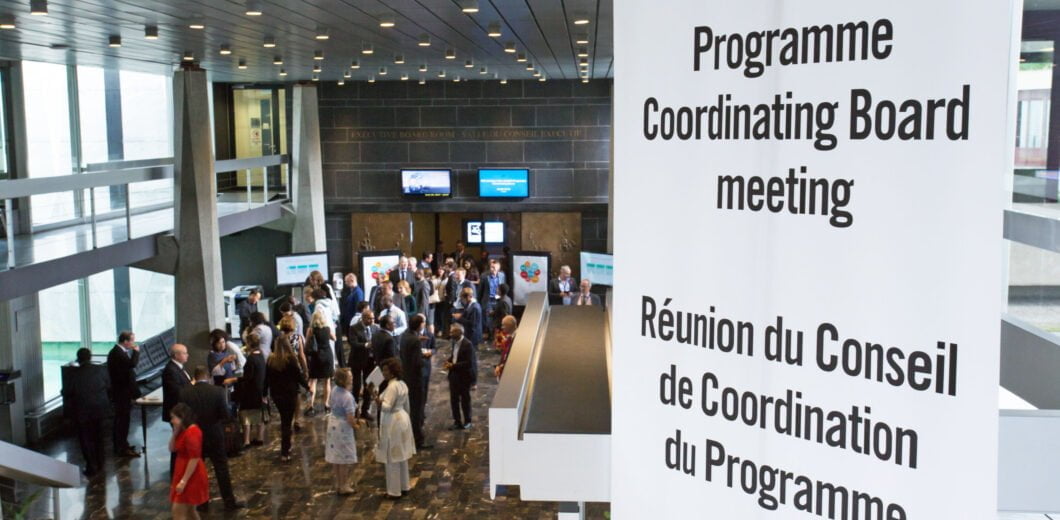We are seeking community proposals for thematic segments at the 56th and 57th PCB meetings, scheduled for June and December 2025. In line with the decision made at the 53rd meeting in December 2023, this call emphasizes the importance of community involvement in shaping the agenda to reflect the most pressing issues in the global HIV response.
The Delegation encourages all stakeholders, including civil society organizations, community groups, and individuals, to submit proposals that highlight critical topics relevant to the global HIV agenda. Each proposal should include a rationale explaining why the topic deserves focus and its relevance to current challenges and opportunities in HIV prevention, treatment, and support.
Proposals will be reviewed based on four key criteria: broad relevance, responsiveness, focus, and scope for action. This ensures that the selected themes are not only pertinent but also actionable, allowing the PCB to effectively address emerging and ongoing issues in the fight against HIV.
The NGO Delegation will thoroughly review all submissions and make recommendations for the final selection. The ultimate decision on the thematic segments will be made at the 55th PCB meeting in December 2024. It’s important to note that previous submissions can be resubmitted, providing an opportunity to revisit themes that have not yet been adopted.
Submission Details
- Deadline for proposals: 10 August 2024
- Submission email: info@unaidspcbngo.org
- Proposal requirements: Include a rationale for the proposed topic and its relevance to the global HIV agenda.
The Delegation will consider various political and strategic factors when reviewing proposals. This inclusive approach aims to ensure that the PCB’s thematic segments reflect diverse perspectives and address the most urgent needs within the global HIV response.
Previous PCB Thematic Segments
- Access to drugs; Support to country-led responses to HIV/AIDS
- Young people and HIV/AIDS; Migration and HIV/AIDS
- Global strategy for HIV/AIDS
- 5 year evaluation of UNAIDS; Partnership agreement between UNAIDS and GFATM
- Women, gender and AIDS; Intensifying HIV Prevention
- Progress in implementing and coordination of national response; Multilateral support at country level; AIDS, Security and Humanitarian response
- Diagnosis and treatment of tuberculosis (TB) among people living with HIV and how UNAIDS can work with TB communities
- The relationship between UNAIDS and the Global Fund to fight AIDS, Tuberculosis and Malaria: issues of relationships with the international technical support architecture and public-private partnerships
- People on the move—forcibly displaced and migrant populations
- Second Independent Evaluation (SIE) of UNAIDS – No thematic segment
- Linking Sexual and Reproductive Health (SRH) services with HIV/AIDS interventions in practice
- Food security and HIV: Ensuring food and nutrition security are integral parts of HIV programming
- Combination prevention: Urgent need to reinvigorate HIV prevention responses globally
- Non-Discrimination
- HIV, Adolescents, and Youth
- Addressing socio-economic drivers of HIV through social protection
- Halving HIV among people who inject drugs
- HIV in emergency contexts
- Shared responsibility and global solidarity for an effective, equitable, and sustainable HIV response for the post-2015 agenda
- The role of communities in ending AIDS by 2030
- HIV and aging
- HIV Prevention 2020: A global partnership for delivery
- Zero discrimination in health care settings
- Ending tuberculosis and AIDS – A joint response in the era of the Sustainable Development Goals
- Delivering on SDG3: Strengthening and integrating comprehensive HIV responses into sustainable health systems for Universal Health Coverage (UHC)
- Reducing the impact of AIDS on children and youth (December 2019)
- Cervical cancer and HIV: Addressing linkages and common inequalities to save women’s lives
- COVID-19 and HIV: Sustaining HIV gains and building back better and fairer HIV responses
- What does the regional and country-level data tell us? Are we listening, and how can we better leverage that data and related technology to meet our 2020 and 2030 goals?
- Positive Learning: Harnessing the power of education to end HIV-related stigma and discrimination and empower young people living with HIV
- HIV and men, in all their diversity, how can we get our responses back on track?
- Priority and key populations, especially transgender people, and the path to 2025 targets: Reducing health inequities through tailored and systemic responses
- Sustaining the gains of the global HIV response to 2030 and beyond
